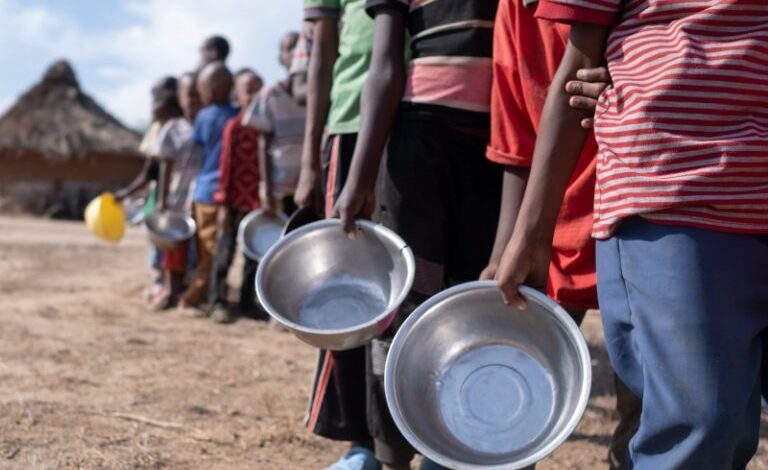Sudan: 18 million People are Facing High Levels of Acute Food Insecurity

The ongoing conflict in Sudan, coupled with disrupted supply chains, economic decline, and hindrances to humanitarian aid, has plunged approximately 37% of the population (18 million people) into severe levels of acute food insecurity. Every day, millions of mothers and fathers are having to make impossible choices to feed their families, often going days without any food. A hunger crisis of unimaginable proportions is not a future concern, but a present reality in certain parts of the country.
The latest assessment of people’s access to adequate food–published in December 2023–revealed that 18 million people are facing high levels of acute food insecurity, 10 million more than before the war started. This includes five million people at risk of facing catastrophic hunger, and more than 730,000 Sudanese children who are suffering from severe malnutrition. This week, the Famine Early Warning Systems Network (FEWSNET) warned of a risk of famine in parts of Sudan, namely in parts of West Darfur, Khartoum, and areas in Greater Darfur. In its own clinics, the IRC has witnessed a 175% increase in daily screening of malnourished children under five years old since the conflict started, partially owing to lack of adequate nutrition consumption due to the conflict.
Shashwat Saraf, East Africa Regional Emergency Director, IRC said,
“The food security situation in Sudan is dire, and as the country prepares to enter the lean season, the worst is yet to come. Conflict has severely disrupted people’s ability to cultivate crops, disrupted markets, led to massive displacement, impacted people’s earnings, and has restricted people’s access to aid, all of which has left millions of people without access to enough food.
To avert further catastrophe, action is needed today: we cannot wait for people to starve to death before scaling-up our response. From our experience in conflict zones and crisis settings, we are certain people must already be starving to death.
An immediate cessation in hostilities, unfettered humanitarian access, and increased funding are urgently needed to provide healthcare and clean supplies of water, to reduce the risk of preventable diseases like diarrhoea, malaria, and measles spreading and killing even more people. Families must be supported to produce food, access food and afford food. Delaying action until a famine is officially declared is morally unacceptable and will only lead to further suffering and loss of life.”
Most experts agree that the reality on the ground is likely to be much more severe than what the data tells us, since populations in greatest need (including in Darfur, Khartoum, and the Kordofans) are the hardest to reach. This not only makes it difficult to get accurate data, but also to deliver aid.
Experts warn that in the coming weeks and months, somewhere in the region of around 222,000 children could die from malnutrition. Acute malnutrition is a life-threatening condition that occurs when children are not taking in enough food to grow, develop or maintain a healthy immune system and illness results in sudden weight loss.



